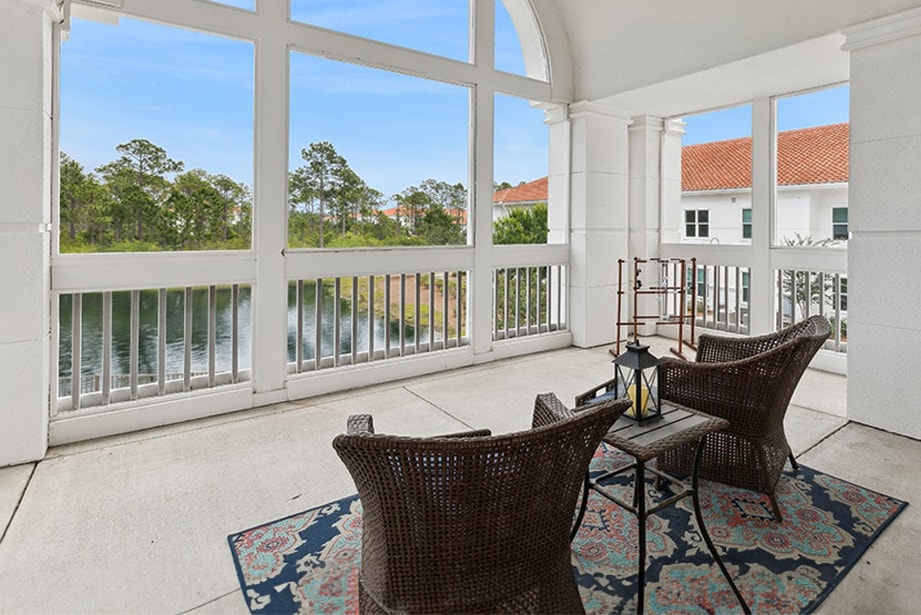Making the right choice for a parent’s care is core to quality of life. With senior living, there are several different levels of care, each tailored to different abilities and needs. But how can you tell when it’s time to transition to a different level of care?
First, watch for signs of memory-related conditions or cognitive impairment. These signs, like frequent forgetfulness or personality changes, indicate a need for higher levels of support. If your loved one shows symptoms of cognitive decline, it’s time to consider a move to memory care. This is key to helping them maintain their quality of life.
Assisted Living Vs. Memory Care
Sometimes, age poses unique challenges. It’s entirely normal—it’s a natural part of aging. Assisted living and memory care aim to provide support for different situations to help those in need. Both are excellent options, but they’re tailored to different situations.
Assisted Living
Assisted living aims to step in and support older adults when they need it most. Your loved one receives a personal care plan that clearly outlines their abilities, wants, and needs. Then, when something becomes a challenge, they receive the support they need. It’s a great way to help a loved one maintain independence and quality of life.
In assisted living, your loved one gets support with daily activities like:
- Cooking
- Housekeeping
- Cleaning
- Personal care
- Transportation
- Medication management
These communities are designed to provide convenience and a sense of community to every resident. When daily tasks become a challenge, a team of caregivers steps in to help. Otherwise, your loved one is encouraged to stay independent wherever they can.
Memory Care
Memory care, on the other hand, is more specific. It’s tailored to provide support for cognitive challenges like memory loss, dementia, and Alzheimer’s disease.
These communities offer secure environments and 24/7 care tailored to the unique needs of residents with cognitive impairments. Caregivers in memory care settings receive specialized training to manage behaviors like confusion and agitation.
This lifestyle is about providing support for complex cognitive conditions to help your loved one maintain dignity and quality of life. While assisted living focuses on promoting independence, memory care prioritizes cognitive health, safety, and personalized care. Meanwhile, everyday life is about making efforts to slow cognitive decline.
When Is It Time for Memory Care?
It can be difficult to know when the time is right to make this change. It helps to watch for signs of cognitive changes—these all indicate it’s time to consider memory care.
Increased Care Needs
If your loved one requires more hands-on support, that’s an important change to note. If their daily needs increase due to cognitive changes, memory care can help. Creative therapies, cognitive-focused programs, and modified exercise routines help your loved one feel fulfilled and cared for.
Safety Concerns
Safety can become a growing concern as dementia progresses. Physical abilities often diminish when cognitive decline is involved, which can increase the risk of falls and other accidents.
Memory care environments are built with safety in mind. Features like secure entryways, emergency response systems, and around-the-clock monitoring ensure residents stay safe while still enjoying moments of independence.
Behavioral Changes
One of the first signs of cognitive decline tends to be changes in behavior. If your loved one shows confusion, agitation, aggression, or begins wandering, they may need more focused care than assisted living provides.
Staff in assisted living settings may not have the specific training to manage these behaviors effectively. Memory care communities, however, are designed to provide secure spaces and compassionate caregivers who know how to address these challenges.

Wandering Risks
For those living with dementia, wandering can be a significant concern. They may unintentionally leave their living area, entering potentially dangerous situations.
Memory care communities are equipped to reduce wandering risks. Secure outdoor spaces, alarmed doors, and attentive staff allow residents to explore safely while providing families with peace of mind.
Social Isolation
Seniors with dementia or Alzheimer’s may withdraw from social activities in assisted living due to overstimulation or confusion. Over time, feelings of isolation could affect emotional well-being.
Memory care communities address this by creating intimate social opportunities. Smaller group sizes and tailored activities reduce feelings of overwhelm. Meanwhile, the on-site team of caregivers encourages participation to help residents feel connected and valued.
Key Advantages of Memory Care
Memory care brings unique benefits to your loved one’s everyday life. It’s an amazing way to help them maintain their dignity in a community that truly understands their needs.
Memory care offers:
- Customized plans: Each resident receives a care plan tailored to their specific needs and preferences.
- Consistent schedules: Structured daily routines help reduce confusion and create a calming, predictable environment.
- Engaging activities: Opportunities like music therapy, memory games, and art classes provide mental stimulation and encourage social engagement.
- Healthy meals: Residents enjoy delicious and nutritious meals prepared with their dietary needs in mind.
- Specialized support: Caregivers trained in dementia and Alzheimer’s care offer compassionate, round-the-clock supervision.
These all play an important role in supporting your loved one.
Is It Time to Consider Memory Care?
The move to memory care doesn’t have to be overwhelming. It’s a thoughtful choice rooted in love and care. Memory care is about restoring dignity and promoting quality of life—that’s what makes it such a special option.
At Somerby Santa Rosa Beach, we’re proud to offer a supportive setting where your loved one can receive compassionate care tailored to their unique journeys. Schedule a visit with our team today, and let’s help your loved one find a place that feels just like home.









